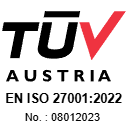Curriculum Details
-
Section 1: Research Methodology, Culture Awareness (RM-CA) & Organizations Orientation (OO)
-
-
Describing the techniques and procedures used to identify and analyze information regarding a specific research topic.
-
Understanding the importance and meaning of cultural awareness and how people acquire their cultures and culture’s important role in personal identities and communication in the strategic environment.
-
The comprehensive information and orientation of NATO and EU.
-
-
Section 2: Thucydidean Approach to Applied Strategy (TAAS)
-
-
Understanding basic concepts related to war, policy, and strategy.
-
Analyzing and appraising theories regarding the employment of military power both on a strategic and at a high-operational level by utilizing current practices on land, sea, air, cyber, and space operations and examining the elements of states’ power (diplomatic, informational, military, economic).
-
-
Section 3: Strategic Leadership (SL)
-
-
Elaborating on the various aspects of classical antiquity by providing students with an appreciation of the uniqueness of strategic leadership orches-trating accumulated knowledge, skills, and abilities necessary to lead national security organizations in a national and global strategic environment.
-
CompreFacultyhending the range of conceptualizations of diversity and their relative influence on organizational processes and performance by analyzing the challenges and opportunities associated with the management and leading complex of a demographically diverse organization.
-
-
Section 4: Strategic Crisis Management (SCM)
-
-
Broadening learning experience focused on thinking, leading, and communicating at the strategic level. Students will participate in required academic deliverables in persuasive writing, speaking on strategic issues, and providing the best military advice.
-
-
Section 5: Critical Thinking in Strategic Studies (CT)
-
-
Thinking process and various methods for efficient and effective learning, thinking, and communication.
-
Learning skills on how to set up your mind in complex/unbounded set-tings, using different approaches, and gaining knowledge of certain techniques such as comprehension questioning, divergent and convergent thinking, and visualization.
-
-
Section 6: Introduction to Peace Support Operations (PSO) (Field Study Trip 1) [This section takes place at NATO’s Multinational Peace Support Operations Training Center (MPSOTC) in Northern Greece].
-
-
Providing basic knowledge about Peacekeeping Operations, policies, and CIMIC Operations (IOs, NGOs and GOs).
-
-
Section 7: Applied International Relations & Foreign Policy (AIR&FP)
-
-
Acquiring knowledge and understanding of Defence Doctrine, National Strategy, and Foreign Policy concepts and theories.
-
Being acquainted with issues such as the formulation of National Defence Policy as well as with transnational and contemporary security threats.
-
-
Section 8: Defence Diplomacy and Negotiations (DD&N)
-
-
Providing a framework to prepare, conduct, and assess effective negotiations.
-
Familiarizing with the evolution of Diplomacy through time, diplomatic tools, and practices in order to establish firm foundations in understanding diplomatic key concepts.
-
-
Section 9: Countering the Changing Threat of International Terrorism (CCTIT)
-
-
Examining the phenomenon of international terrorism in the 20th and 21st Centuries.
-
Discussing the various strategies for countering it.
-
Imparting deep knowledge about particular terrorist groups, and deploying several concepts to understand their motivation, organization, and evolution.
-
Assessing the development of counter-terrorist strategies since the end of the Cold War, charting the emergence of more holistic approaches. The study of terrorism embodies history, psychology, and political science.
-
-
Section 10: Managing Maritime Security Threats (MMST) (Field Study Trip 2) [This section takes place at the NATO Maritime Interdiction Training Centre (NMIOTC) which is located at Chania on the Island of Crete].
-
-
Aiming to:
-
-
-
-
Introduce students to Maritime Security Operations and the contemporary threats in the maritime environment.
-
Educate students on the NATO concept analyzing NATO Operations Legal Aspects, Operational Planning Processes and Briefing Techniques.
-
-
-
Section 11: War Games/ Strategic Exercise
-
-
Exercising to encourage reflection, critical assessment, and consideration of issues that arise in a complex and ambiguous environment. The core courses provide opportunities for critical thinking and reflective learning, often culminating in an end-of-course exercise.
-
Documentation
Course Directive 2024
Course Program, 2024
Information and Administrative Issues 2024
Personal Administration Form (PAF)



